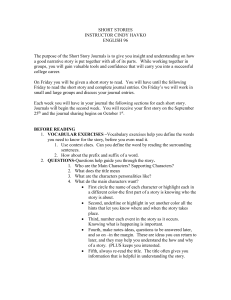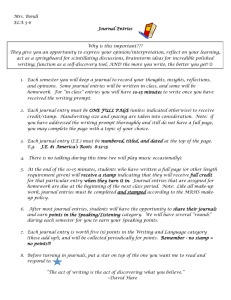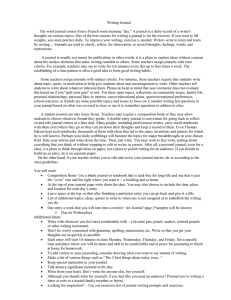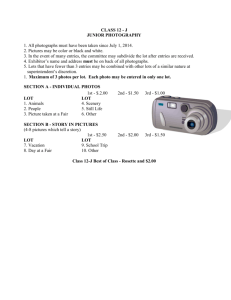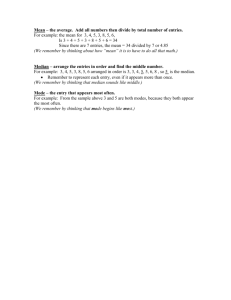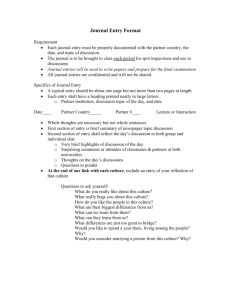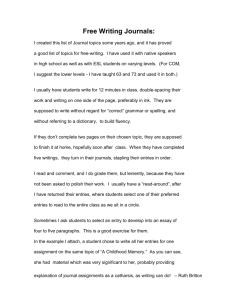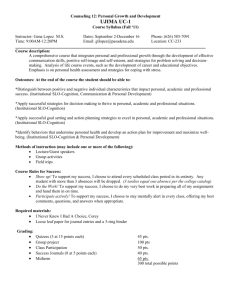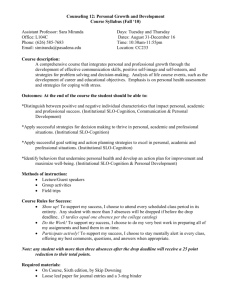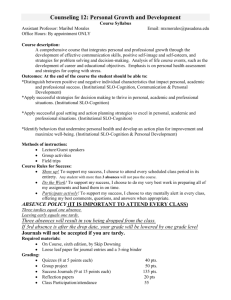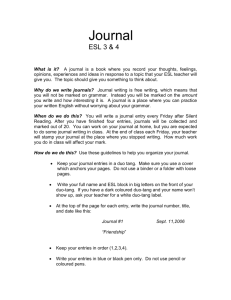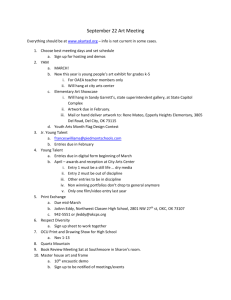Adult/Student Reading Journal - Springfield Public Schools
advertisement
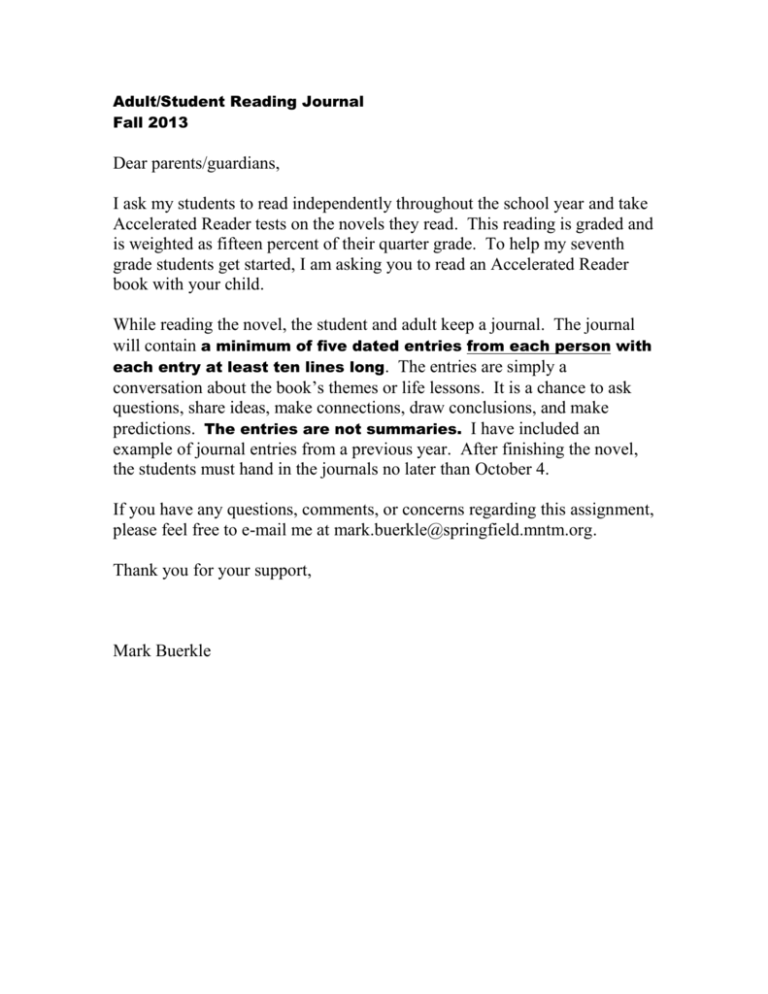
Adult/Student Reading Journal Fall 2013 Dear parents/guardians, I ask my students to read independently throughout the school year and take Accelerated Reader tests on the novels they read. This reading is graded and is weighted as fifteen percent of their quarter grade. To help my seventh grade students get started, I am asking you to read an Accelerated Reader book with your child. While reading the novel, the student and adult keep a journal. The journal will contain a minimum of five dated entries from each person with each entry at least ten lines long. The entries are simply a conversation about the book’s themes or life lessons. It is a chance to ask questions, share ideas, make connections, draw conclusions, and make predictions. The entries are not summaries. I have included an example of journal entries from a previous year. After finishing the novel, the students must hand in the journals no later than October 4. If you have any questions, comments, or concerns regarding this assignment, please feel free to e-mail me at mark.buerkle@springfield.mntm.org. Thank you for your support, Mark Buerkle Instructions for Dialogue Journals Before reading, make a plan for the completion of the assignment. 1) Decide how many pages you are going to read each week. 2) Decide after which chapters you will write journals. Remember: each person must have five entries, each ten lines long. Do not write more than five entries each. 3) Set a goal for the final date in which the student will hand in the journal entries and take the Accelerated Reader test. The last possible due date is October 4. I have included a calendar for easy reference. 4) Report to me the name of the book and the date the student will turn in the journals. Follow these rules: 1) One person writes an entry then the other person writes. All of the writing will stay together in the same notebook. 2) Date each entry and write in ink as legibly as possible. Do not type the entries. Grammar, spelling, and mechanics are not graded. 3) Include the title of the book in the first entry, and write a minimum of ten lines for each entry. Be sure to sign your name at the end of each entry. 4) Do not start a new page for each entry. Just skip a line and continue writing. You should also write on the back side of pages. 5) In your journal, focus on the book’s life lessons. Share your reactions to what you read. Ask your partner questions and write back about your ideas, feelings, and similar experiences. 6) Parents: Guide the “discussion” toward learning. Pick out teachable moments. If a character gets thrown into jail, mention to your child your family values regarding behavior and decision making. Also, make your child write at a deeper level. Example: Parent asks, “Would you like to move to a new school?” Student poorly replies, “I would not like moving to a new school.” Make sure your child knows to explain the reasons and include thoughts and feelings. 7) Students: Don’t summarize the book. 8) Make sure you answer any questions that your partner asks. Project Goals I want to get parents involved with school. I know many of you are involved already. I also know that 11, 12, and 13 year olds push their parents away in order to gain their independence. By doing this assignment students are asking their parents to get involved. Use this time to strengthen your relationship with your child. Many of you may have a favorite book that you want your child to read. Now is a great time to do that. I want students to talk to their parents. Many young adult novels deal with issues that affect teenagers. Use this time to talk about some heavy issues that are sometimes uncomfortable to bring up. I want to help students get their AR points. Some students wait until the end of the quarter to get their AR points and then run out of time, which negatively affects their grade. Students not only get points for their journals, but they also can get AR points for this project if they pass the AR test. READ! READ! READ! FAQ Do they have to do this for every book they read? No, this is a one time thing. How much is this assignment worth? This assignment is worth 15 points, plus the students get AR points for first quarter if they pass the test. What if I choose not to read with my child? You can find another adult (out of high school) to read with your child. Students will earn a zero out of fifteen if no one reads with them. If you need help finding a partner for your child, send me a note or an email as soon as possible. How is the assignment graded? The items in bold print on the first two pages of this handout are what I grade. If these guidelines are not followed, I will deduct points. I do not grade spelling, grammar, and mechanics.
